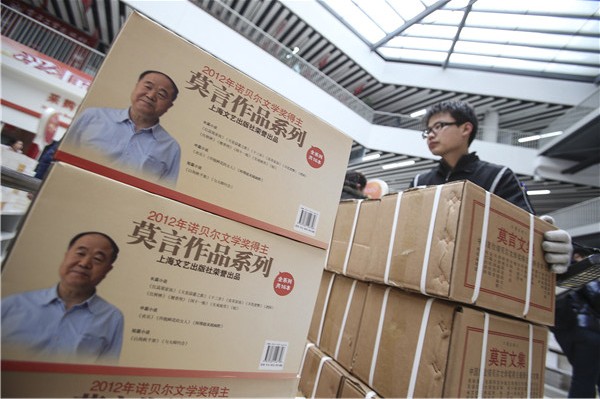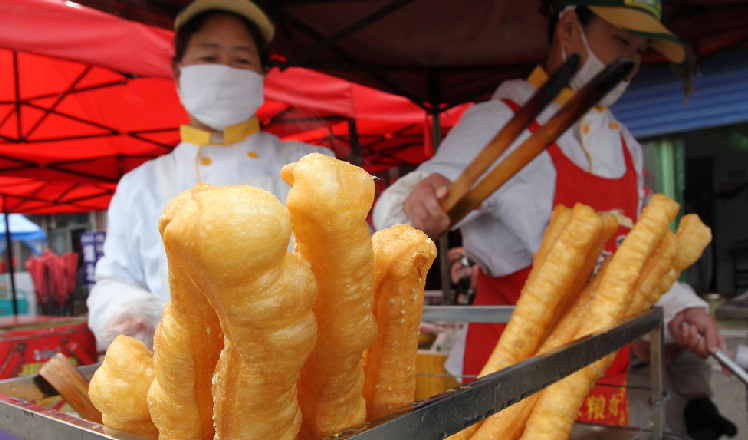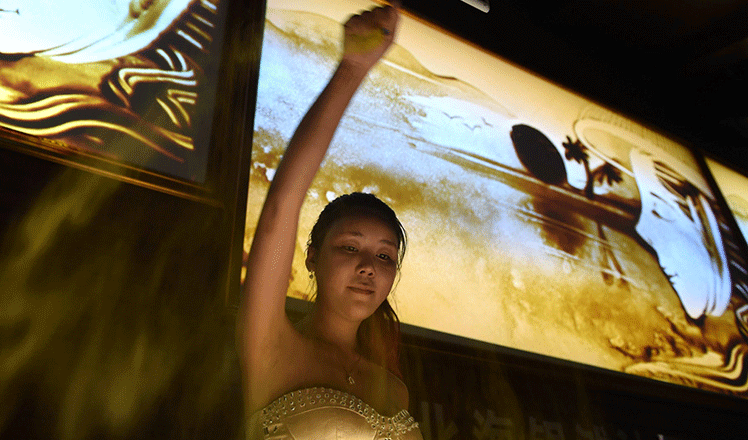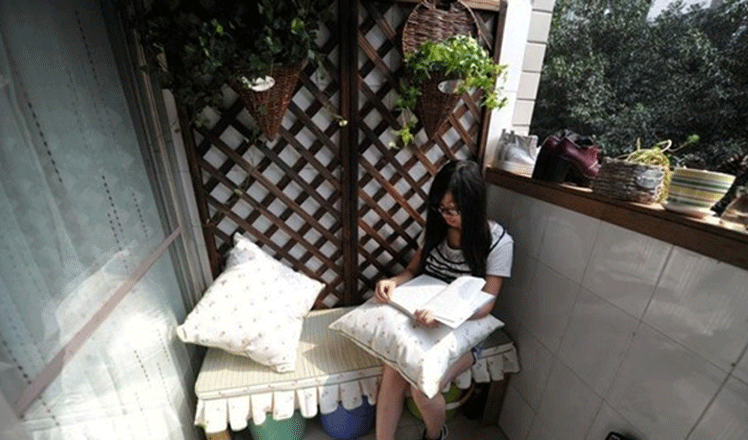Too much of a good thing
Updated: 2015-10-28 08:37
By Yang Yang(China Daily)
|
||||||||
 |
|
Mo Yan's books become the hottest commodities in the country's book fairs after his winning of the Nobel Prize for literature in 2012. [Photo by Liu Hui / For China Daily] |
Recent international literary awards have shown the world a different side of China.
In 2012, Mo Yan won the Nobel Prize for literature and in August 2015 Liu Cixin won the Hugo Award for his science novel The Three-Body Problem.
The latter has become so popular that the venue for his speech "The Future of China Through Chinese Science Fiction" at the University of Sydney on Nov 3 has had to be moved to a larger auditorium.
However, in China, literary awards have become the subject of an anti-corruption drive.
In late April, the Ministry of Culture announced that 60 percent of awards for literature and art would be canceled in the first half of this year, in an effort to curb the excessive number of awards that have led to unhealthy competition and corruption.
Experts say that while literary awards offer recognition and encouragement to writers, they must be properly managed to promote the development of the Chinese culture.
The Aiqing Poetry Award is among those awards which have come under scrutiny.
In January 2014, judges chose more than 400 poems as winners from 32,800 entries by primary and middle school students around the country, The Paper news portal reported.
In May 2014, the chairwoman of the Hubei Provincial Writers Association and writer, Fang Fang, posted a micro blog, saying that Liu Zhongyang, a poet from Hubei province, whose poems were not up to the mark, had won a unanimous vote in a first-round recommendation to enter a nationwide competition for the Lu Xun Literature Prize, one of the country's top literature awards.
Fang cast doubt over the means used to obtain the recommendation.
"Such a person should be rejected for the award ... but he won over all the judges," she wrote.
But when the final result was released, another poet, Zhou Xiaotian from Sichuan province, won.
Some people called the win "an insult" to Lu Xun, a great Chinese writer.
But Wang Meng, the Mao Dun Literature Award winner in 2015, commented on Zhou's poem Qiang Jin Cha (Urge somebody to drink tea), saying that the poem was "elegant, unique, lively and vivid".
There are so many awards-country, provincial, city, county, district and town-that there is no way to keep track of them.
Almost every day there is some literary award given away somewhere, The Paper reported.
Some of these awards are given to publicize a place's tourism potential instead for the literature.
For example, Wuhan's Wen Yiduo Poetry Award is to acknowledge contemporary poems and draw attention to the local tourism sector.
Mo Yan's hometown in Gaomi, Shandong province, has established the Red Sorghum Poetry Award to garner publicity for the county, Chengdu Business Daily reported.
"Literature awards have no influence on me," says Li Yi, 40, in Shanghai, a self-professed bookworm. "Sometimes the winners are not good enough."
Lu Wenjun, an editor at the marketing department of Shanghai Literature and Art Publishing House, says that after Jin Yucheng and Ge Fei won the Mao Dun Literature Award this year, the publisher saw a jump in the sales of their books, "which is normal for important literature award winners".
Important awards like the Mao Dun Literature Award and the Lu Xun Literature Prize undoubtedly bring fame and money to the writer.
Winners of the former receive 500,000 yuan ($80,000) each and the winners of the latter 100,000 yuan, not to mention the public attention and the chances for career development.
"But writers should remember their responsibilities toward society," says Zhang Yawen, honorary vice-chairman of the Heilongjiang Provincial Writers Association and a Lu Xun Literature Prize winner.
She declined to comment on the suspected corruption in the awards, but said that the Ministry of Culture was doing a good job of managing the literature awards.
"The government should manage the awards to maintain the sanctity of the important ones like the Mao Dun Literature Award and the Lu Xun Literature Prize," she says.
Ren Jianming, a researcher and director of the Clean Governance Research Center in Beihang University, says the government should establish regulations to curb unfair practices and create a proper space for literature and China's cultural development.

 They live in Russia, but shop in China to save money
They live in Russia, but shop in China to save money
 Survivors receive treatment after strong earthquake in Pakistan
Survivors receive treatment after strong earthquake in Pakistan
 Ten cancer-causing foods you probably eat every day
Ten cancer-causing foods you probably eat every day
 How to enjoy pumpkin without carving it
How to enjoy pumpkin without carving it
 Extraordinary masters of folk art made famous on the Internet
Extraordinary masters of folk art made famous on the Internet
 Sister cities mingle in Chicago
Sister cities mingle in Chicago
 Girl with a sand painting dream
Girl with a sand painting dream
 Decorating benefactors make a dorm a cozy home
Decorating benefactors make a dorm a cozy home
Most Viewed
Editor's Picks

|

|

|

|

|

|
Today's Top News
Tu first Chinese to win Nobel Prize in Medicine
Huntsman says Sino-US relationship needs common goals
Xi pledges $2 billion to help developing countries
Young people from US look forward to Xi's state visit: Survey
US to accept more refugees than planned
Li calls on State-owned firms to tap more global markets
Apple's iOS App Store suffers first major attack
Japan enacts new security laws to overturn postwar pacifism
US Weekly

|

|








